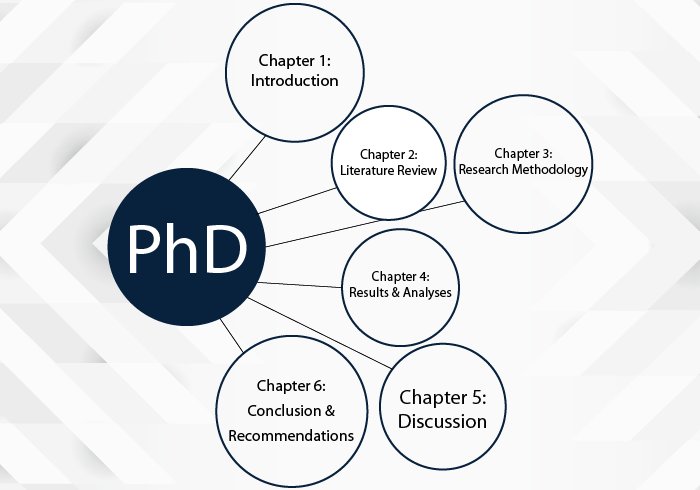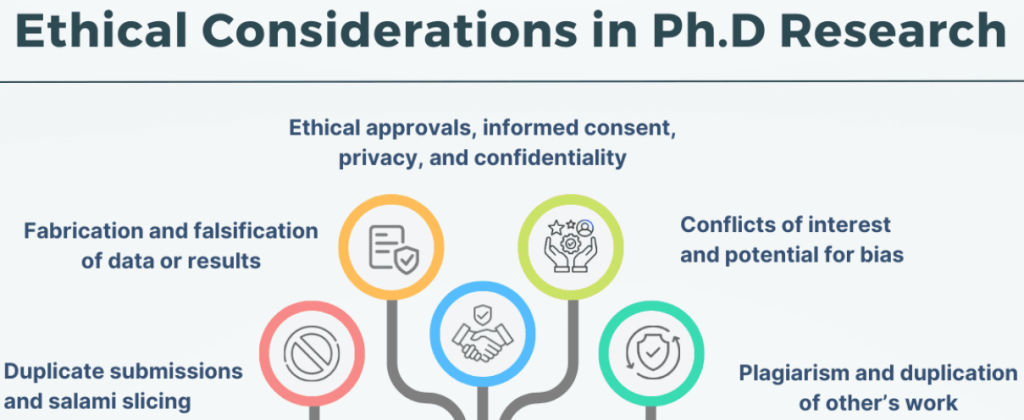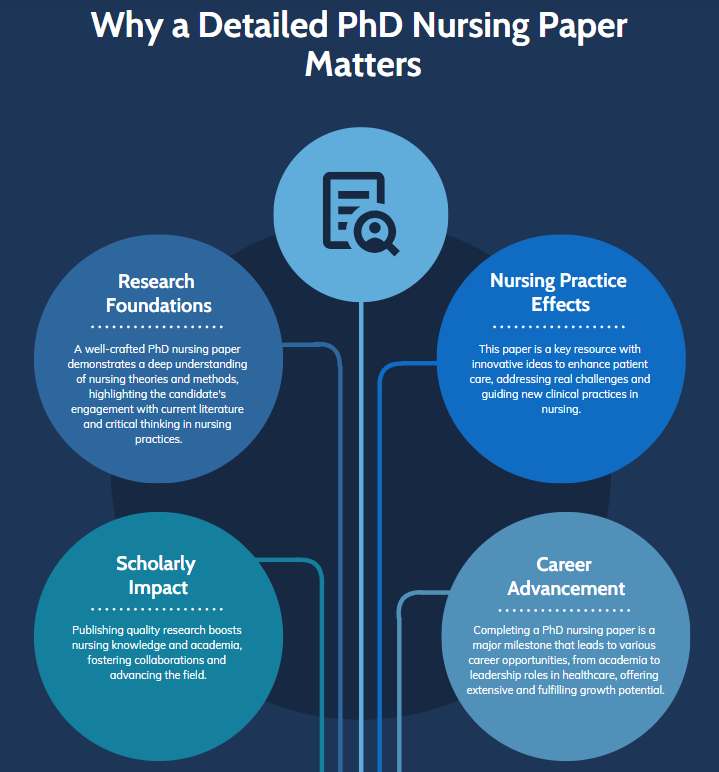
Table of Contents
The culmination of years of rigorous research and intellectual pursuit, the PhD nursing paper represents a significant milestone in a nursing scholar’s career. It is a testament to dedication, perseverance, and a deep understanding of the chosen area of nursing expertise. However, even the most meticulously researched project can falter if the writing itself is not up to par.
This article will explore essential aspects of crafting a compelling and impactful PhD nursing paper. It offers essential tips to guide aspiring doctoral candidates towards producing a document that is clearly written, logically structured, and persuasively argued.
Step-by-Step Guide to Writing a Stellar PhD Nursing Paper
I. Conceptual Clarity and Research Design:
Before even considering the mechanics of writing, the foundation of a successful PhD nursing paper lies in a clear and well-defined research question or hypothesis. This requires a thorough review of existing literature, identifying gaps in knowledge and formulating a research design that effectively addresses these gaps. A poorly defined research question will inevitably lead to a disjointed and unconvincing PhD nursing paper.
The chosen methodology must be appropriate for the research question and rigorously applied. The methods section of the PhD nursing paper should be detailed enough for another researcher to replicate the study. This includes a clear description of the sample population, data collection instruments, and statistical analyses employed. Transparency and methodological rigor are paramount in establishing the credibility of the nursing paper.
II. Structuring the PhD Nursing Paper:
A well-structured PhD nursing paper follows a logical progression of ideas, guiding the reader through the research process and its findings. A typical structure includes:
- Abstract: A concise summary of the entire PhD nursing paper, highlighting the research question, methodology, key findings, and conclusions. This section is crucial for attracting readers and providing a quick overview of your work.
- Introduction: This section sets the stage for the PhD paper. It begins by establishing the context of the research, reviewing relevant literature to identify the research gap, and clearly stating the research question or hypothesis. The introduction should logically lead to the description of the research methods.
- Literature Review: This is a critical section of the PhD nursing paper, demonstrating the researcher’s understanding of the existing body of knowledge related to the research topic. It should be more than a simple summary of articles; it should critically synthesize the literature, highlighting key themes, controversies, and gaps in the research. The literature review should logically support the research question and methodology chosen for the PhD paper.
- Methodology: This section provides a detailed account of the research design, including the study population, sampling methods, data collection techniques, and data analysis procedures. The methodology section should be clear, concise, and replicable. Any ethical considerations related to the research must also be addressed in this section of the PhD nursing paper.
- Results: This section presents the findings of the study in a clear and objective manner. Tables, figures, and graphs are commonly used to present complex data visually. It is crucial to avoid interpreting the results in this section; simply report the findings as they are.
- Discussion: This section interprets the findings presented in the results section, relating them back to the research question and existing literature. It is here that the researcher can discuss the implications of their findings, the limitations of the study, and potential directions for future research. The discussion section provides an opportunity to showcase a critical understanding of the research context and its broader significance. This is a vital component of a strong PhD nursing paper.
- Conclusion: This section summarizes the key findings and conclusions of the PhD nursing paper. It reiterates the significance of the research and its contribution to the field of nursing.
- References: A comprehensive list of all sources cited in the PhD nursing paper, following a consistent citation style (e.g., APA, MLA).

III. Writing Style and Clarity:
The writing style of a PhD nursing paper must be clear, concise, and objective. Avoid jargon and overly technical language unless absolutely necessary, and define any specialized terms used. The language should be formal and academic, maintaining a consistent tone throughout the paper. The use of active voice is generally preferred for clarity and conciseness.
Grammar and spelling errors should be meticulously checked, as they can detract from the credibility of the PhD nursing paper. Proofreading and editing are essential steps in ensuring the quality of the written work. Consider seeking feedback from colleagues or mentors to gain different perspectives on your PhD nursing paper.
IV. Ethical Considerations:
Ethical considerations are paramount in all research, and the PhD nursing paper is no exception. Researchers must ensure that their study adheres to ethical guidelines, including informed consent, confidentiality, and anonymity. Any potential risks or harms to participants must be minimized, and appropriate measures must be taken to protect their rights and well-being. This ethical consideration must be clearly outlined in the PhD nursing paper’s methodology section.
V. Data Presentation and Analysis:
The presentation of data in a PhD nursing paper is crucial for conveying the research findings effectively. Use tables and figures appropriately to summarize and highlight key data points. Ensure that all data are clearly labeled and explained. The choice of statistical analysis should be appropriate for the type of data collected and the research question being addressed. The statistical analysis section of the PhD nursing paper should be sufficiently detailed to allow for scrutiny and replication of the findings. A clear and accurate interpretation of the results is critical in ensuring the robustness of the PhD paper.
VI. Dissemination and Impact:
The writing of a PhD nursing paper is not the end of the research process. Dissemination of the findings is crucial for impacting practice and informing policy. Consider submitting the PhD nursing paper to peer-reviewed journals for publication, presenting the research at conferences, and sharing the findings with relevant stakeholders. The impact of the PhD paper is measured not only by its academic merit but also by its contribution to the nursing profession and broader healthcare landscape.
VII. Seeking Feedback and Revision:
Writing a PhD nursing paper is an iterative process. It is essential to seek feedback from supervisors, colleagues, and other experts throughout the writing process. This feedback can help identify areas for improvement and ensure that the paper meets the required standards of quality and rigor. Revision is an integral part of the writing process, and multiple rounds of revision are often necessary to produce a polished and impactful PhD paper.
VIII. Maintaining Focus and Organization:
The length and complexity of a PhD nursing paper can be daunting. Maintaining focus and organization is essential to ensure that the paper flows logically and remains coherent. Creating an outline before beginning to write can be a helpful strategy for organizing the content and ensuring a clear structure for the PhD nursing paper. Regularly revisiting the research question and objectives will help maintain focus and prevent the paper from becoming tangential.
Common Mistakes in Writing a PhD Nursing Paper
The culmination of years of rigorous research and dedicated study, the PhD nursing paper represents a significant scholarly contribution to the field. However, even the most diligent researchers can fall prey to common pitfalls that can detract from the impact and credibility of their work. Avoiding these mistakes is crucial for producing a high-quality PhD nursing paper that will stand the test of time.
1. Lack of Clarity and Focus in the Research Question
A poorly defined research question is the foundation of a weak PhD nursing paper. Many aspiring academics struggle to articulate a clear, concise, and focused research question that directly addresses a significant gap in the existing literature. A vague or overly broad question will lead to a rambling, incoherent paper that fails to convincingly contribute to the field.
Before embarking on the research process, meticulous planning and refinement of the central research question are paramount. This involves critically reviewing existing literature to identify a specific niche needing investigation and formulating a question that is both researchable and relevant. The research question should guide every aspect of the PhD paper, from the literature review to the methodology and discussion.
2. Insufficient Literature Review
A comprehensive and critical literature review is the bedrock of any strong PhD nursing paper. Many students make the mistake of simply summarizing existing research without critically analyzing its strengths and weaknesses, identifying gaps in knowledge, or establishing a clear theoretical framework. A robust literature review requires a thorough understanding of the relevant literature, the ability to synthesize diverse perspectives, and a critical eye to identify biases and limitations in previous studies. The literature review should demonstrate the author’s expertise in the field and clearly articulate the rationale for the current research. A weak literature review diminishes the credibility of the entire nursing paper.
3. Methodological Flaws
The methodology section of a PhD nursing paper is crucial. It describes how the research was conducted, enabling readers to assess the validity and reliability of the findings. Common mistakes in this section include inadequate sample size, inappropriate statistical analysis, or a lack of clarity regarding the research design. Methodological rigor is essential for ensuring the trustworthiness of the results. A poorly designed study, regardless of the quality of writing, will severely limit the impact of the PhD paper. Attention should be paid to ensuring the chosen methodology is aligned with the research question and that all steps are clearly and meticulously documented.
4. Weak Data Analysis and Interpretation
Analyzing and interpreting data are critical components of a PhD nursing paper. Many students struggle to effectively present and interpret their findings, leading to a lack of clarity and potentially misleading conclusions. It is crucial to use appropriate statistical techniques and to present the data in a clear and concise manner. The interpretation of the data should be logical, well-supported by the evidence, and carefully linked back to the research question. Over-interpreting results or drawing conclusions unsupported by the data are significant weaknesses that can undermine the credibility of the paper.
5. Poor Writing and Presentation
Even the most ground-breaking research can be undermined by poor writing and presentation. A PhD nursing paper requires clear, concise, and grammatically correct writing. It should be well-organized, with a logical flow of ideas and a consistent style. Proper citation and referencing are crucial to avoid plagiarism and to give credit to the relevant sources. The paper should be well-presented, with clear tables and figures, and a professional layout. Seeking feedback from supervisors and peers is vital to ensure the writing is clear and meets the high standards expected of a PhD paper.
6. Ignoring Ethical Considerations
Ethical considerations must be addressed comprehensively in the PhD nursing paper. This includes obtaining informed consent from participants, ensuring confidentiality and anonymity, and adhering to all relevant ethical guidelines. Failure to address ethical considerations can invalidate the research and lead to serious consequences. The ethical implications of the study should be carefully considered throughout the research process and transparently reported in the paper.

By carefully avoiding these common pitfalls, students can significantly improve the quality and impact of their PhD nursing paper, ensuring their hard work culminates in a significant contribution to the field of nursing scholarship. The successful completion of a PhD paper requires meticulous planning, rigorous methodology, and clear communication. Attention to detail in every stage of the process is vital for producing a robust and impactful piece of research.
Frequently Asked Questions about PhD Nursing Papers
Embarking on a PhD is a significant undertaking, and for aspiring nurses, the culmination of years of research often manifests in the form of a substantial PhD nursing paper. The process can be daunting, filled with questions about format, content, and expectations. This section addresses some frequently asked questions surrounding this crucial piece of academic work.
What is the expected length of a PhD nursing paper?
The length of a PhD nursing paper varies significantly depending on the university and specific program requirements. However, it’s generally expected to be substantially longer than a master’s thesis, often ranging from 100 to 250 pages, or even more. This length allows for a comprehensive exploration of a chosen research question and a thorough presentation of findings.
What are the essential components of a PhD nursing paper?
A successful PhD nursing paper typically comprises several key sections: an abstract providing a concise overview; a literature review critically analyzing existing research; a clearly defined methodology outlining the research design and data collection methods; a detailed presentation of results; a discussion interpreting the findings in the context of the literature review; and finally, a conclusion summarizing the contributions of the research and suggesting avenues for future study. Each section requires meticulous attention to detail and a strong, cohesive argument.
What are the common challenges faced in writing a PhD nursing paper?
Writing a PhD nursing paper presents numerous challenges. Time management is crucial, as the project often spans several years. Maintaining focus on the research question and avoiding scope creep is vital. Data analysis can be complex and demanding, requiring advanced statistical skills. Ensuring the ethical considerations are addressed appropriately throughout the entire research process is also paramount. Finally, navigating the feedback and revision process with your supervisor requires patience and resilience.
How can I ensure my PhD nursing paper meets the required standards?
Careful planning and consistent engagement with your supervisor are essential. Regularly reviewing the university’s guidelines for formatting and referencing is crucial to avoid penalties. Seeking feedback from peers and utilizing writing support services offered by the university can significantly improve the quality and clarity of your PhD nursing paper. Remember that your paper is a significant contribution to the field of nursing; strive for excellence in both the research and the presentation.
What is the significance of a well-written PhD nursing paper?
A well-written PhD nursing paper signifies a major contribution to nursing knowledge and practice. It demonstrates a deep understanding of the chosen research area, advanced research skills, and the ability to synthesize complex information into a coherent and persuasive argument. It can influence policy decisions, inform clinical practice, and inspire further research in the field. Successfully completing your paper marks a significant achievement and opens doors to numerous career opportunities. The impact of a strong PhD paper extends far beyond the completion of your doctoral program.

The Bottom Line
Crafting a high-quality PhD nursing paper requires careful planning, meticulous execution, and a commitment to excellence. By adhering to the principles of clear conceptualization, rigorous methodology, effective writing, and ethical considerations outlined above, aspiring nursing scholars can produce a document that significantly contributes to the field of nursing and leaves a lasting impact on the profession. The paper is not merely an academic exercise; it is a contribution to knowledge that has the potential to shape nursing practice, education, and research for years to come.
The quality of your PhD nursing paper is a direct reflection of your dedication and scholarly pursuit. Therefore, strive for excellence in all aspects of your work, from the initial research design to the final polished manuscript. A well-written PhD paper is a testament to your intellectual capabilities and commitment to advancing the nursing profession. The success of your nursing paper relies on a thorough understanding of these essential steps, ensuring that your years of hard work culminate in a compelling and influential contribution to the field. Never underestimate the power of a well-structured and clearly written PhD paper; it can be the cornerstone of a successful and impactful nursing career.
Get Professional PhD Nursing Paper Writing Service
At PhD Nurse Writer, we can help you to write an original and compelling PhD nursing paper. Our service covers topic suggestion, nursing paper writing, proofreading, editing, formatting and plagiarism removal. Besides PhD nursing papers, we can also help you with writing research papers, case studies and essays. Get in touch with us today for a customized paper writing service that will set you up for success.





